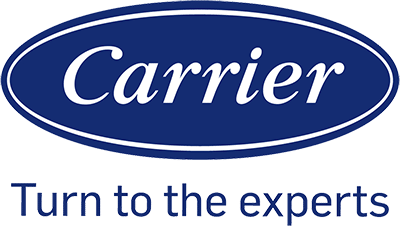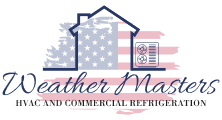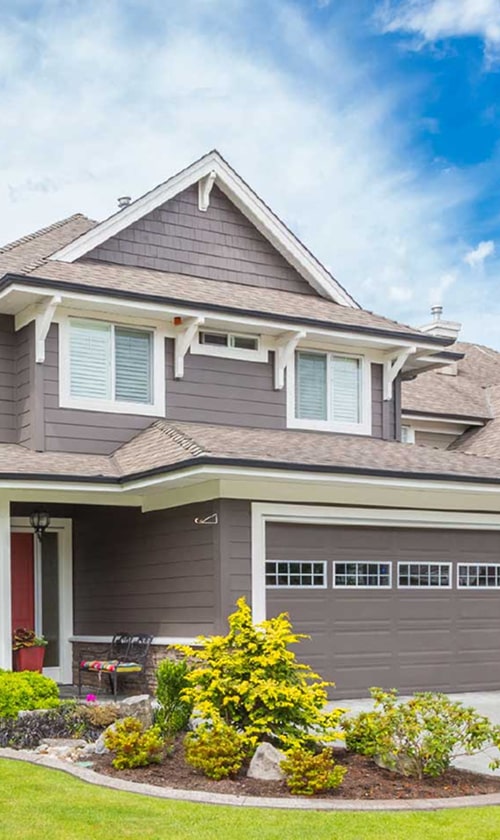Understanding HVAC System Maintenance

Proper maintenance of an HVAC system is crucial for ensuring its longevity and operational efficiency. Our guide clarifies the elements and benefits of a well-maintained HVAC system.
Importance of Regular Maintenance
Regular maintenance of HVAC systems is essential to preserve air quality and enhance energy efficiency, which can lead to lower energy bills. We recommend scheduling maintenance checks at least twice a year to ensure that the system is functioning optimally. This proactive approach helps preempt performance issues and can prolong the lifespan of the unit.
- Air Filters: Clean or replace filters every 30-90 days to prevent airflow blockages and maintain indoor air quality.
- Coils and Furnace: Regular inspection and cleaning of the coils and furnace components are vital as they directly impact the efficiency of the system.
- Ductwork: Inspect and clean ducts to ensure there are no leaks or obstructions affecting airflow.
Components of an HVAC System
Understanding the different components of an HVAC system highlights the diverse areas requiring attention during regular maintenance. Below is a brief overview:
- Thermostat: This device controls the temperature and should be checked for proper functioning.
- AC System and Cooling Unit: Includes the evaporator and condensing coils which need to be cleaned to avoid inefficiencies.
- Air Ducts: The pathways through which warm or cool air travels must be kept sealant and free from debris.
- Furnace: Comprising the heat exchanger and blower motor, requires annual inspections to prevent faults.
Through consistent HVAC maintenance, we can ensure the system operates effectively, providing comfortable indoor conditions and contributing to a healthy living environment.
Top Maintenance Mistakes to Avoid

Preventive maintenance is crucial for the reliability and longevity of an HVAC system. We will discuss specific errors that could lead to decreased efficiency and higher operational costs if not addressed promptly.
Ignoring Filter Replacements
Changing air filters is the simplest yet most frequently overlooked maintenance task. A dirty or clogged filter restricts airflow, strains the system, and can worsen indoor air quality. We recommend bi-monthly filter changes, although some systems may need more frequent replacements depending on usage and environmental factors.
Neglecting Professional Inspections
At least once a year, an HVAC contractor should inspect your system. During these professional inspections, technicians can identify issues that, if unaddressed, might lead to expensive repairs. Regular tune-ups ensure that your air conditioning system runs at peak efficiency and that all components are in good working order.
Overlooking Common HVAC Problems
Addressing problems like leaks, unusual noises, or inconsistent temperatures as soon as they arise avoids more significant issues. We caution against underestimating seemingly small problems, as they can indicate larger system flaws. Professional help is essential to accurately diagnose and resolve these concerns.
Impact of HVAC Issues on Efficiency and Cost

In our experience, regular HVAC maintenance is paramount for preserving both energy efficiency and cost-effectiveness. We frequently witness the unintended consequences that arise when maintenance is overlooked.
Consequences of Inadequate Maintenance
Neglecting regular HVAC checks leads to inefficient performance. Dust and debris accumulation, for instance, can restrict airflow and reduce an HVAC system’s energy efficiency. This results in the unit working harder to maintain comfort levels, increasing energy consumption and utility bills.
- AC Performance: Dirt and wear may cause the cooling system to overexert, resulting in a shortened lifespan.
- Longevity: Regular care can mean the difference between an HVAC system lasting 10 years or 15+ years.
How Costs Accumulate from HVAC Neglect
When we bypass routine maintenance, small issues can swiftly escalate into costly repairs. For example:
- Filters: Clogged air filters strain the system, potentially leading to expensive component replacements.
- Ductwork: Leaks can go unnoticed, inflating both energy costs and the risk of a system-wide failure.
Moreover, HVAC inefficiency not only spikes energy costs but also hastens equipment deterioration. Over the long term, money spent on preventable repairs and early system replacements far exceeds the investment in regular maintenance.
Diagnostic Tips for Common HVAC System Issues
In addressing common HVAC problems, we are focusing on refrigerant leaks and thermostat issues, as they are frequent culprits of system inefficiency.
Identifying and Managing Refrigerant Leaks
Signs of a Refrigerant Leak:
- Decreased Cooling Power: If our air conditioner is struggling to cool the space, it could be due to a lack of refrigerant.
- Hissing Sounds: Unusual noises such as hissing or bubbling indicate that refrigerant is escaping from the system.
- Ice on Evaporator Coils: Ice buildup on coils is often a telltale sign of refrigerant issues.
Steps to Manage Leaks:
- Inspect Visibly: Check the refrigerant lines and connections for signs of damage or wear.
- Use Leak Detection Tools: Apply leak detection dye or use electronic detectors to accurately locate the leak.
Please note: Handling refrigerant requires certification due to the environmental regulations, so we recommend contacting a professional for repairs.
Troubleshooting Thermostat Issues
Common Thermostat-Related HVAC Problems:
- Inaccurate Temperature Readings: If the thermostat is not reflecting the actual room temperature, it may cause our HVAC system to run more frequently or not enough.
- Non-responsive Unit: A thermostat that fails to prompt the HVAC system to turn on or off is indicative of a connectivity or power issue.
Diagnostic Steps:
- Check Power Source: Confirm the thermostat is receiving power, either from batteries or the electrical system.
- Ensure Proper Placement: The thermostat should be positioned away from direct sunlight and drafts to avoid false readings.
- Clean and Reset: Dust buildup can impair a thermostat’s function. Clean it gently and reset the device if necessary.
By paying close attention to our air vents for mold growth or signs of an issue and listening for unusual sounds, we improve our chances of catching problems early. With routine maintenance, we can avoid the common pitfalls that lead to HVAC inefficiency and costly repairs.
Preventative Measures for HVAC Longevity
To ensure the optimal performance and extended lifespan of your residential HVAC system, we must commit to regular maintenance and timely professional services.
Routine Maintenance Checklists
Maintain Your System:
- Schedule semi-annual tune-ups to prevent inefficiencies
- Replace filters every 1-3 months to ensure clean airflow
- Keep vents and registers unblocked to maintain consistent air distribution
Check System Components:
- Inspect the thermostat for proper operation
- Examine condensate drains for blockages
- Monitor refrigerant levels and inspect for leaks
When to Seek Professional HVAC Services
Recognizing the Signs:
- Unusual noises or odors can indicate that it’s time for a professional evaluation
- A sudden spike in energy bills may suggest your HVAC system is working harder than it should
Engage Trained Technicians:
- For installation issues, such as an improperly sized air conditioner, always consult with a trained technician
- If you suspect any component is damaged or worn out, prompt HVAC repair will save costs and extend your system’s longevity
Frequently Asked Questions
When we talk about HVAC system maintenance, certain questions arise frequently. We’re here to answer these, providing clarity and guidance to ensure your system remains efficient and reliable.
What are the typical signs of poor HVAC maintenance?
Typical signs include unusual noises, weak airflow, inconsistent temperatures, and an unexpected increase in energy bills. These indicators often point to the need for professional inspection and maintenance.
How often should HVAC filters be replaced?
We recommend replacing HVAC filters every 60 to 90 days for optimal performance. Homes with pets or high dust levels may require more frequent changes.
What actions can lead to HVAC inefficiency or failure?
Neglecting regular maintenance, such as not cleaning coils or failing to check the refrigerant levels, can cause inefficiency or failure. Allowing debris to accumulate in and around the unit also hinders performance.
What should be included in a routine HVAC maintenance checklist?
A routine maintenance checklist should include inspecting the air filters, cleaning the coils, checking the thermostat settings, examining the condensate drain, and ensuring the system cycles properly.
How can neglecting HVAC maintenance impact energy costs?
Neglecting maintenance can cause the HVAC system to work harder, leading to increased energy consumption and higher utility bills. Regular maintenance keeps the system running efficiently, contributing to energy cost savings.
Can incorrect thermostat settings damage HVAC systems?
Incorrect thermostat settings can lead to unnecessary cycling and strain on the HVAC system, which may shorten its lifespan. Proper settings ensure the system maintains the desired temperature without overworking.




